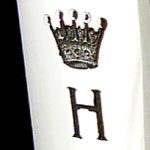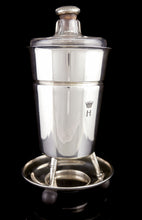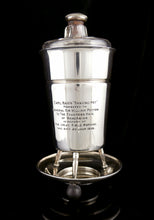Field Marshal Earl Haig's Shaving Pot, Circa 1900
Adding product to your cart
Height: 18cm (7.1in)
Silverplate. Comprising lift-out glass vessel and stopper and integral burner stand with ball feet, by Roberts & Belk of Holborn, engraved with an Earl's coronet over the initial ‘H’ and inscribed verso,‘Earl Haig's shaving pot presented to General Sir William Peyton by the Countess Haig of Bemersyde in memory of the Great Field Marshal who died 29 Janr. 1928’
Read more
General Sir William Eliot Peyton (1866-1931) was Haig’s military secretary between 1916 and the 1918. He was unusually tall (six foot six inches) and cut a dash as the Delhi Herald of Arms Extraordinary at the Delhi Durbar of 1911. Early in his career during service in the Sudan he received three spear wounds including one in the back which touched his lung, and had a horse killed under him in hand to hand combat with a Dervish. He commanded a cavalry division in Gallipoli, and afterwards in Egypt led a successful expedition against the Senussi tribe. However feelings about his postings on the Western Front between May 1916 and July 1918 were expressed silently by his omitting any mention of them from his entry in Who’s Who. The post was at the heart of appointments, promotions, removals, honours and awards of the British Expeditionary Force in France and Flanders.
At the time of the shaving pot bequest, Peyton was G.O.C. Scottish command, having returned from commanding a cavalry division in India post-war and having served as Military Secretary in Whitehall. He retired in 1930 and died at his club in St. James’s Square, S.W.1.
Reference: Keown-Boyd, H. (1986) ‘A Good Dusting, the Sudan campaigns 1883-1899’, London






